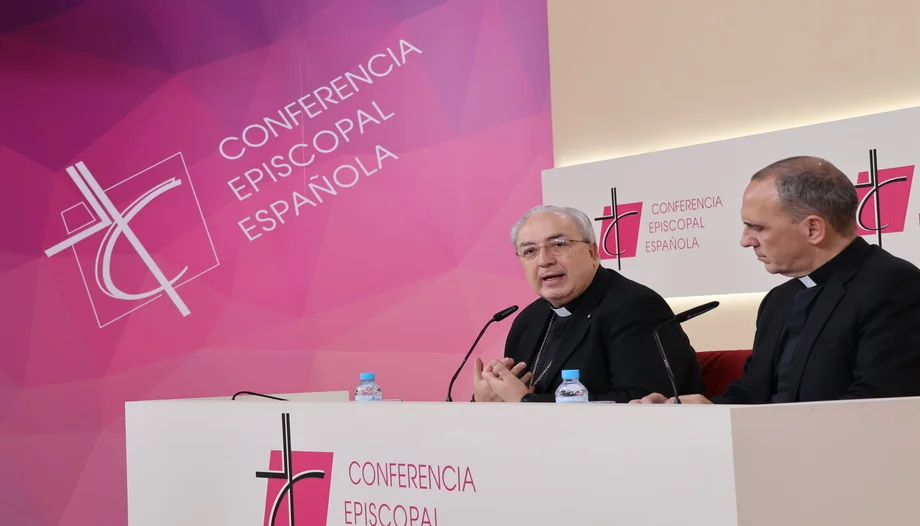Following the ecumenical celebration held on November 20 at the Almudena Cathedral to mark the 1700th anniversary of the Council of Nicaea, the Spanish Episcopal Conference (CEE) is today celebrating the last day of its 128th Plenary Assembly, which has been taking place at the CEE headquarters since Tuesday, November 18.
The Secretary General, Monsignor Francisco César García Magán, reported on the conclusions of this meeting at the final press conference of the Plenary Assembly.
Pastoral guidelines, synodality, and the PRIVA plan
The bishops have made progress in drawing up the pastoral guidelines for the next four-year period (2026-2030), a strategic document that will set out common priorities and the actions planned for each Episcopal Commission. After receiving contributions from dioceses, ecclesiastical provinces, and directors of the CEE, the text is now in the synthesis phase prior to its final drafting.
In addition, the Assembly studied the proposals of the CEE's synodal representative, Monsignor Francisco Conesa, to promote structures and practices that make diocesan life more synodal. These include the creation of diocesan synodal teams and the consolidation of synodal representatives already present in almost all dioceses. Although these initiatives are not entirely new—they were already promoted after the Second Vatican Council—the aim is to deepen and systematize the active participation of the faithful in ecclesial life.
The annual report of the Advisory Committee on the Comprehensive Reparation Plan for minors and persons with equivalent rights who are victims of sexual abuse (PRIVA) has also been released. The presentation was made by the CEE representative on this Committee, Cristina Guzmán, and the director of the Coordination and Advisory Service of the Offices for the Protection of Minors, Jesús Rodríguez Torrente. To date, 101 cases have been submitted to this Commission, 58 of which have already been resolved and communicated, and the necessary information has been requested for the other cases in order to establish the channel for reparation.
Regarding abortion, Bishop García Magán emphasized that the debate transcends religious convictions, pointing out that, in addition to the religious approach, there is a scientific and philosophical dimension that must also be considered in any reflection on this issue.
100 more seminarians than last year
Monsignor Jesús Vidal, president of the Episcopal Subcommittee for Seminaries and the Pope's representative for these matters, has reflected on the current situation: formation criteria, number of seminarians, and vocational reality. As Monsignor García Magán pointed out, the number of seminarians in Spain has increased by about 100 young people compared to last year: “The spirit blows where it wills and when it wills. We cannot make marketing plans,” he stressed.
As for the «Catholic turn,» García Magán emphasized that this approach to the spiritual dimension of the person can be diffuse and «difficult to pigeonhole» into a specific reality, but he considered it a positive sign. “Emphasizing the spiritual dimension of the person is valuable: we are not just a collection of cells and chemical reactions; we are distinguished from plants and animals by our capacity to transcend and seek meaning,” he said.
Thus, the president of the Episcopal Commission for the Laity, Family, and Life, Bishop Carlos Escribano, and the president of Catholic Action, Eva Fernández Mateo, have reported on the current situation of Catholic Action and the new evangelization project they are working on.
The bishops reflected on the presence of lay people in public life, emphasizing the importance of accompanying and promoting vocations of service, encouraging the active participation of the faithful in parish life and in society. As part of this initiative, the creation of summer courses focused on formation and dialogue was proposed, following the methodological framework of «see, judge, and act.».
The Plenary also approved the final text of the Regulation of the «General Council of the Church in Education.» This document includes the contributions of the 127th Plenary Assembly, which already approved the proposal and the base document, and the contributions of the members of the Plenary and the Permanent Seminar of this Council.







